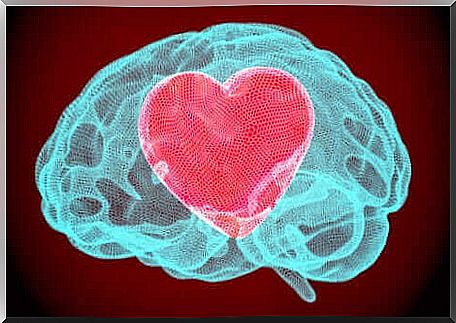Emotional Intelligence Allows You To Live Better

Emotional intelligence won’t make you happier. It will not prevent adversity from knocking on your door, nor will it make you less fearful of difficulties.
Although sometimes people try to sell us the idea that it will help us build the kind of life we want, all of these slogans have important nuances. Daniel Goleman made it clear in the 1990s with his famous book “Emotional Intelligence”: this field has only one goal, that of bringing intelligence to emotions.
This is the real key, to enable us, as people more competent in this dimension, to cope better with others and to learn to regulate our behavior by knowing what we need and how to meet those needs. This is the goal, and this is the real magic.
For, in reality, what we should aspire to in our daily life is not absolute happiness, that state of permanent joy and satisfaction. Our reality is already complex, uncertain, and ever-changing enough for this absolute climax to be something truly lasting.
What we should aspire to is to feel good about ourselves, to feel that even when difficulties arise, we have the psychological resources to deal with them. It is also understanding that human relationships are complicated and that they sometimes lead to suffering.
But with emotional intelligence, we will handle these situations much better. It prevents us from getting stuck and facilitates a better coexistence. Let’s dig deeper into the subject.

Emotional intelligence won’t make you happier, but you will feel more competent
Lack of emotional intelligence is a common lack. We see it in those adults who don’t know how to conduct a conversation in which they listen, respect and express their needs and ideas clearly and without losing their temper.
We also see it in our jobs… These managers who do not take care of the emotional climate of their employees and impose aggressive leadership.
We also observe this lack in parents who do not know how to educate their children in such competition. They invalidate their children’s emotions with the classic “ don’t cry, don’t be like that, because it’s silly ” or “ you’re too old for those temper tantrums, so stay there until you are. ‘in remets ‘.
Developing emotional intelligence means recognizing that behind every behavior, there is an emotion. Thus, the goal of each parent will be to develop this emotional maturity and self-awareness from an early age.
However, we have seen these shortcomings for decades. Although a change is already visible in education and in schools, we still have a lot to do, correct and promote. For this reason, it is necessary to clarify some ideas.
Being emotionally intelligent is not a gift, it’s a quality we work on
Emotional intelligence won’t make you happier. It won’t make you the top of your class or the absolute leader in your dream job. It is not a gift with which one can catapult oneself directly to success.
This is a quality that allows us to lay the foundations for a more satisfying and skillful reality. Understanding, using, regulating and managing our emotions allows us, for example, to better manage stress.
These are all qualities of life, tools of well-being and resources for facing adversity. After all, happiness comes and goes.
What we really need are mechanisms to cope better with difficult days, resources to take advantage of calm days. All this will allow us to be satisfied with ourselves in all circumstances, whether easy or complicated.

Emotional intelligence won’t make you happier, but it will set the stage
Emotional intelligence won’t make you happier, but it will give you the psychological nutrients you need to make it happen . This is shown, for example, by an interesting study carried out in 2007 at the University of Oxford by Dr Alex Furnham.
According to this work, emotional intelligence lays the foundation for us to perceive ourselves as more satisfied with ourselves. However, there is one fundamental element, and that is that happiness is a multidimensional realm.
It integrates aspects such as our emotional and social relationships, the fact of having achieved certain goals, of living according to our values, of having a daily life in which we feel neither fear nor anguish, and of feeling fulfilled, between others. Emotional intelligence is not the answer to everything, but it motivates us and helps us achieve these aspects.
Moreover, this quality will not prevent us from experiencing losses, disappointments, failures… Unhappiness is also part of life, and we must accept it knowing that it is not permanent.
Emotional intelligence will help us to manage these states and move to stages of acceptance, to those cycles in which, while happiness is not absolute, everything hurts less and we allow ourselves to seize new opportunities. Here is the secret.










